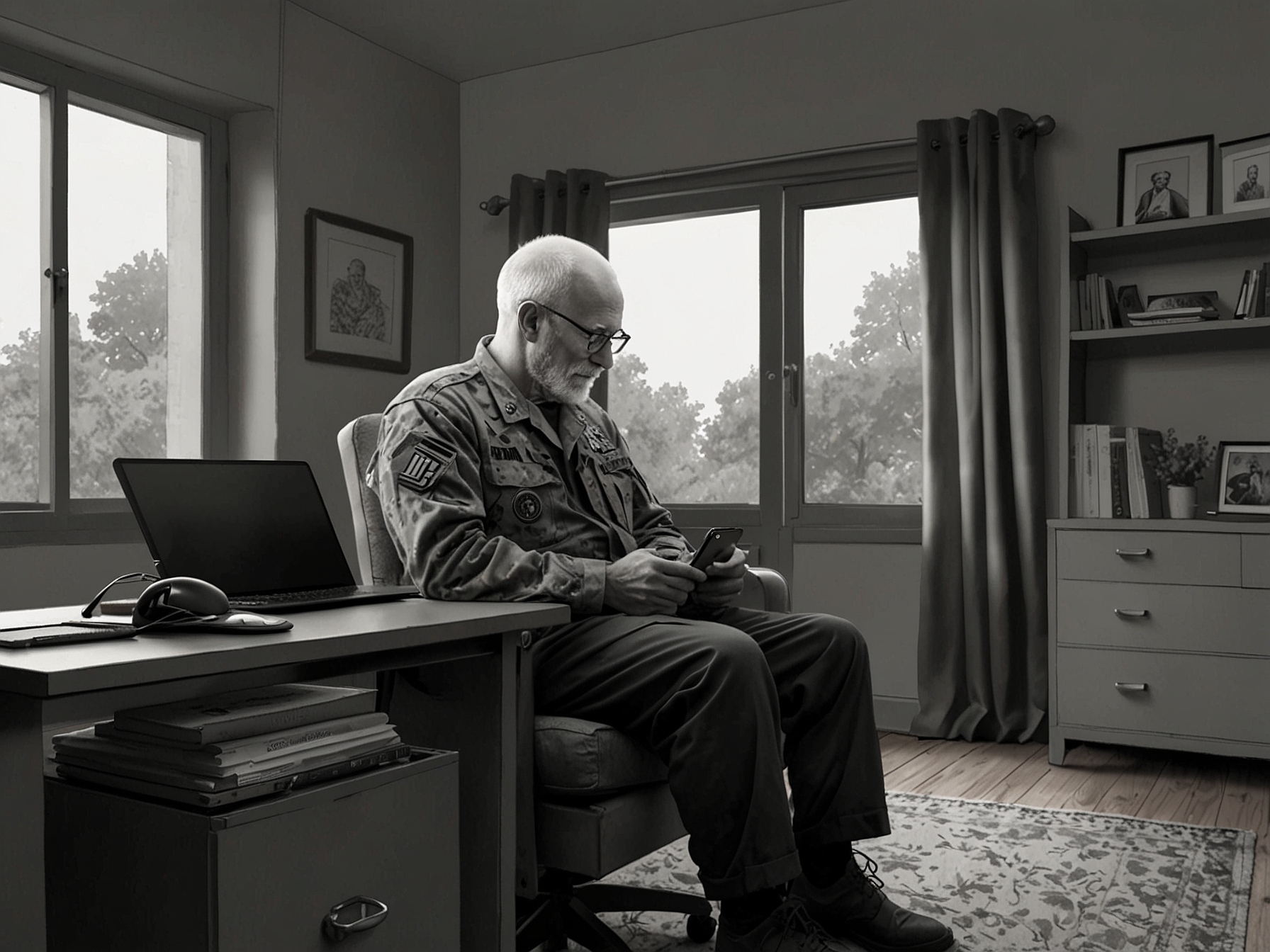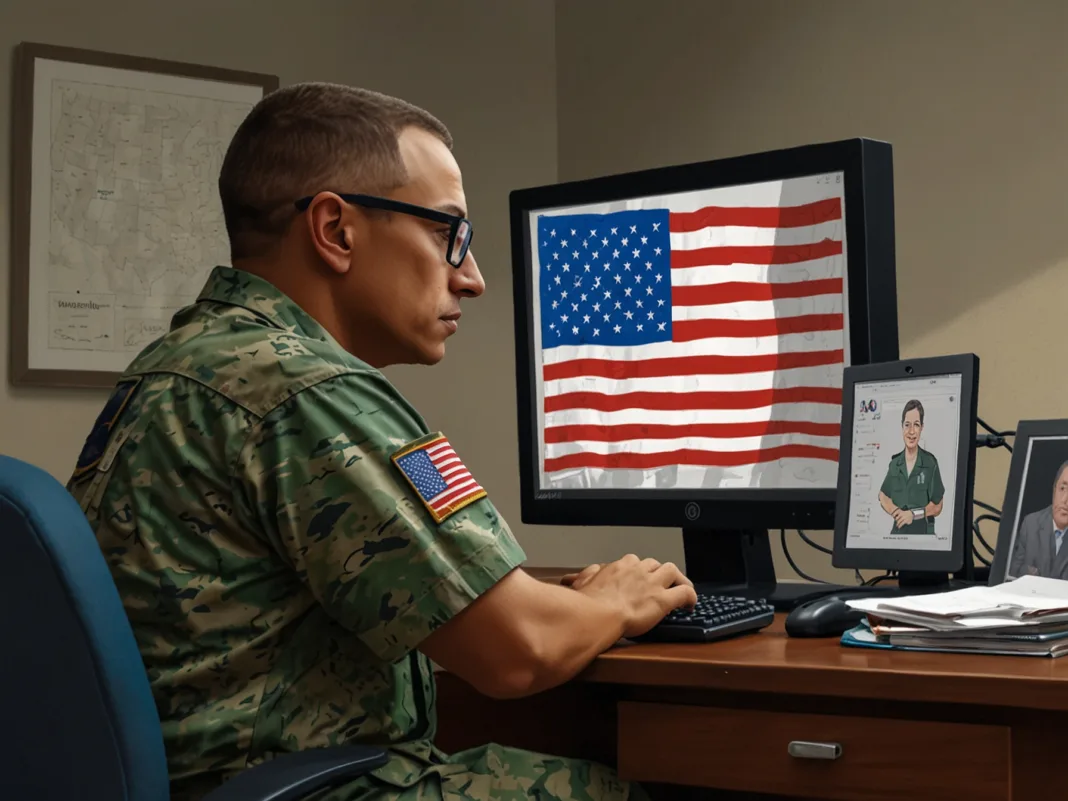Leading the Veterans Affairs (VA) has provided valuable insights into the challenges and opportunities of veteran healthcare. A system that caters to the unique needs of military veterans demands unwavering dedication and continuous improvement. One crucial approach the VA can adopt to substantially enhance veterans’ health care is by leveraging cutting-edge technology, and particularly, by investing in comprehensive telehealth services. This strategy could revolutionize the way veterans access and receive care, thereby ensuring their well-being in an ever-evolving healthcare landscape.

© FNEWS.AI – Images created and owned by Fnews.AI, any use beyond the permitted scope requires written consent from Fnews.AI
Healthcare for veterans presents unique challenges, including geographical barriers, mental health concerns, and physical ailments resulting from service-related injuries. Traditional healthcare models often struggle to meet these specific needs promptly and effectively. Telehealth, facilitated by advancements in digital technology, offers a viable and transformative solution. By tapping into telehealth, the VA can bridge the gap between veterans and healthcare providers, offering seamless, real-time medical consultations, therapy sessions, and follow-up care.
One of the critical advantages of telehealth is its ability to reach veterans in rural and remote areas. Many veterans reside in regions where access to specialized medical facilities is limited. Traveling long distances for medical appointments can be both physically exhausting and financially burdensome. Telehealth eliminates the need for physical travel, allowing veterans to receive high-quality medical consultations from the comfort of their homes. This not only enhances convenience but also ensures that veterans do not forgo essential medical care due to logistical challenges.

© FNEWS.AI – Images created and owned by Fnews.AI, any use beyond the permitted scope requires written consent from Fnews.AI
Mental health care is another area where telehealth can make a significant impact. Many veterans grapple with conditions such as post-traumatic stress disorder (PTSD), depression, and anxiety. The stigma associated with seeking mental health care often prevents veterans from accessing the help they need. Telehealth provides a confidential and less intimidating platform for mental health consultations. Veterans can connect with mental health professionals through video calls, ensuring timely intervention and support. This type of access can drastically improve mental health outcomes and overall quality of life for veterans.
Furthermore, telehealth can streamline the management of chronic conditions that are prevalent among veterans. Conditions such as hypertension, diabetes, and chronic pain require regular monitoring and follow-up. Through telehealth services, healthcare providers can remotely track patients’ health metrics, adjust treatment plans, and provide ongoing support. This continuous monitoring helps in early detection of potential health issues, preventing complications, and reducing hospital readmissions.
In addition to telehealth, the VA can enhance veterans’ healthcare by investing in advanced electronic health records (EHR) systems. These systems facilitate seamless data exchange between different healthcare providers and departments, ensuring that veterans’ medical histories are easily accessible and up-to-date. EHR systems can enhance coordination of care, reduce medical errors, and improve the overall efficiency of healthcare delivery. By integrating telehealth with robust EHR systems, the VA can create a cohesive and responsive healthcare infrastructure.
Training and support for healthcare providers are essential components of successfully implementing telehealth. The VA should invest in comprehensive training programs to ensure that healthcare professionals are well-versed in using telehealth technologies. This includes technical training, as well as guidance on maintaining a high-quality patient-provider relationship in a virtual environment. Providing ongoing technical support and resources will help healthcare providers adapt to telehealth and deliver the best possible care to veterans.
Policy reforms and funding allocations are also critical to the successful integration of telehealth in veterans’ healthcare. The VA must advocate for policies that support the expansion of telehealth services and allocate sufficient funds to develop and maintain telehealth infrastructure. This includes investing in high-speed internet access for remote areas, purchasing state-of-the-art telehealth equipment, and ensuring cybersecurity measures to protect veterans’ private information.
Moreover, conducting research and gathering data on the effectiveness of telehealth services will help the VA continually refine and improve its telehealth offerings. This includes assessing patient satisfaction, health outcomes, and cost-effectiveness. By analyzing this data, the VA can identify areas for improvement and implement evidence-based practices to maximize the benefits of telehealth for veterans.
In conclusion, embracing telehealth is the one transformative step the VA can take to dramatically improve veterans’ health care. By investing in telehealth technology, supporting healthcare providers, advocating for policy changes, and continually assessing the effectiveness of telehealth services, the VA can create a more accessible, efficient, and responsive healthcare system for veterans. This approach not only addresses the unique challenges veterans face but also ensures that they receive the high-quality care they deserve in a rapidly changing healthcare environment.
Was this content helpful to you?





